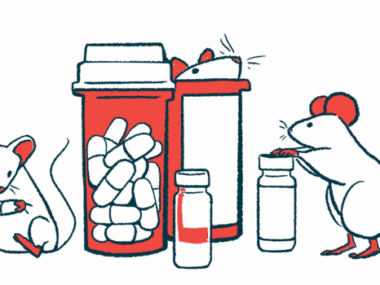When Do I Tell New Friends About My Sister’s Diagnosis?
Written by |

It has always been relatively easy to make new friends. I take kindness very seriously, and I try to be as friendly as humanly possible. The hard part isn’t striking up a conversation or finding things to talk about, but rather knowing when to bring up my sister, Abby.
I love talking about my family. We are extremely close, and they always seem to naturally come up in the conversation. However, I always run into a roadblock when talking about them. With Abby’s Sanfilippo syndrome diagnosis, some aspects of our lives have become normal, such as Abby having a caregiver or occasionally having seizures. Mentioning these things to people for the first time can be overwhelming — not just for them, but for me, too.
I think about this a lot when meeting new people. I tend to overshare when I first meet someone. I love sharing things about my life and family. The first time I made a new friend after my sister was diagnosed, I was conflicted. If she wasn’t going to be a serious friend of mine, I didn’t want to mention it. But as soon as I began talking about my family, I realized Sanfilippo was an inevitable part of that conversation. It was yet another reminder that it was our new normal.
Because of this, I get so nervous when I decide to talk about my sister. It shouldn’t be scary, but it puts a lot of pressure on that person. I’m anxious to know how they will perceive that conversation. Will they think I’m looking for sympathy? Will they get too overwhelmed and decide to walk away? I’ve experienced both, and it hangs over my head each time.
However, all of this makes true friendships more meaningful. I have my fair share of bad days, and because Abby is my only sibling, it can be very isolating. Having friends who are willing to listen and support me through those days is so important. Oversharing may be overwhelming for both parties, but finding people who ask questions rather than change the subject is such a refreshing feeling.
I have to accept that any conversation about my family will now include Sanfilippo. Oversharing is like a coping mechanism. Between my mom’s cancer and Abby’s prognosis, it makes sense that I try to make connections as quickly as possible. It’s how I build my army of support!
I will continue to have that difficult conversation. Sanfilippo is rare, and we have to talk about it. I won’t let the intimidation of Abby’s prognosis stop me from talking about her or our family.
***
Note: Sanfilippo News is strictly a news and information website about the syndrome. It does not provide medical advice, diagnosis, or treatment. This content is not intended to be a substitute for professional medical advice, diagnosis, or treatment. Always seek the advice of your physician or other qualified health provider with any questions you may have regarding a medical condition. Never disregard professional medical advice or delay in seeking it because of something you have read on this website. The opinions expressed in this column are not those of Sanfilippo News or its parent company, Bionews, and are intended to spark discussion about issues pertaining to Sanfilippo syndrome.





Leave a comment
Fill in the required fields to post. Your email address will not be published.